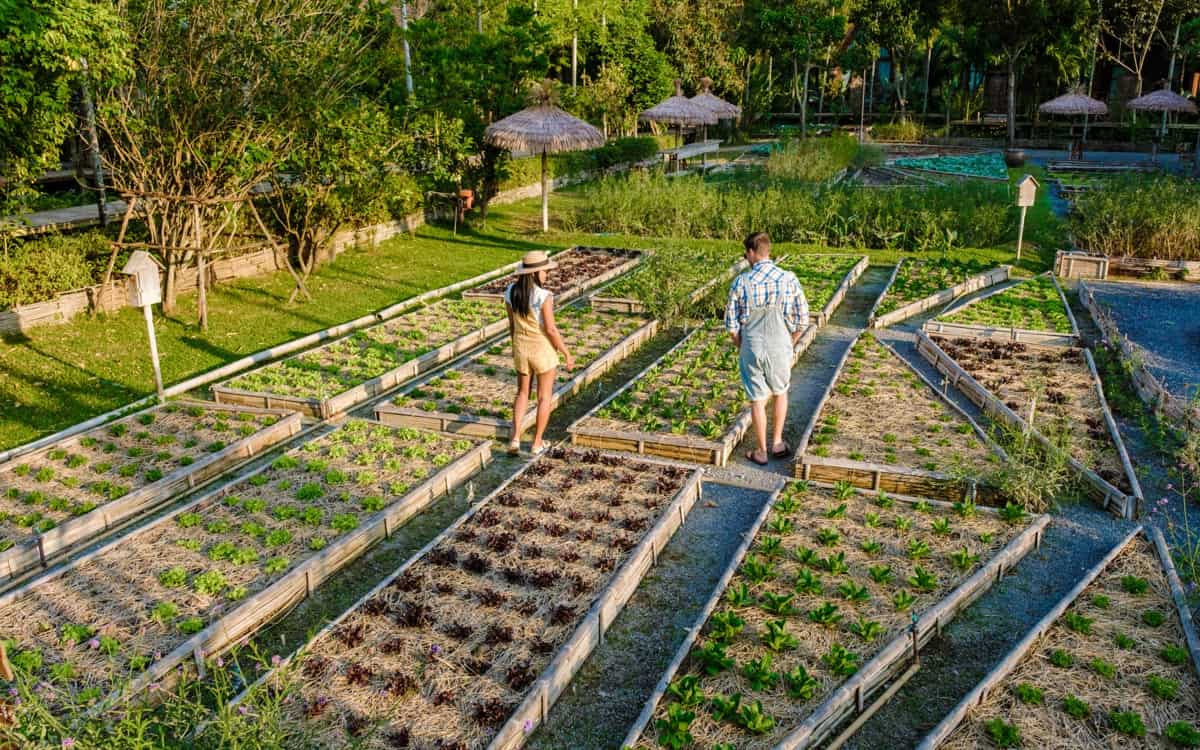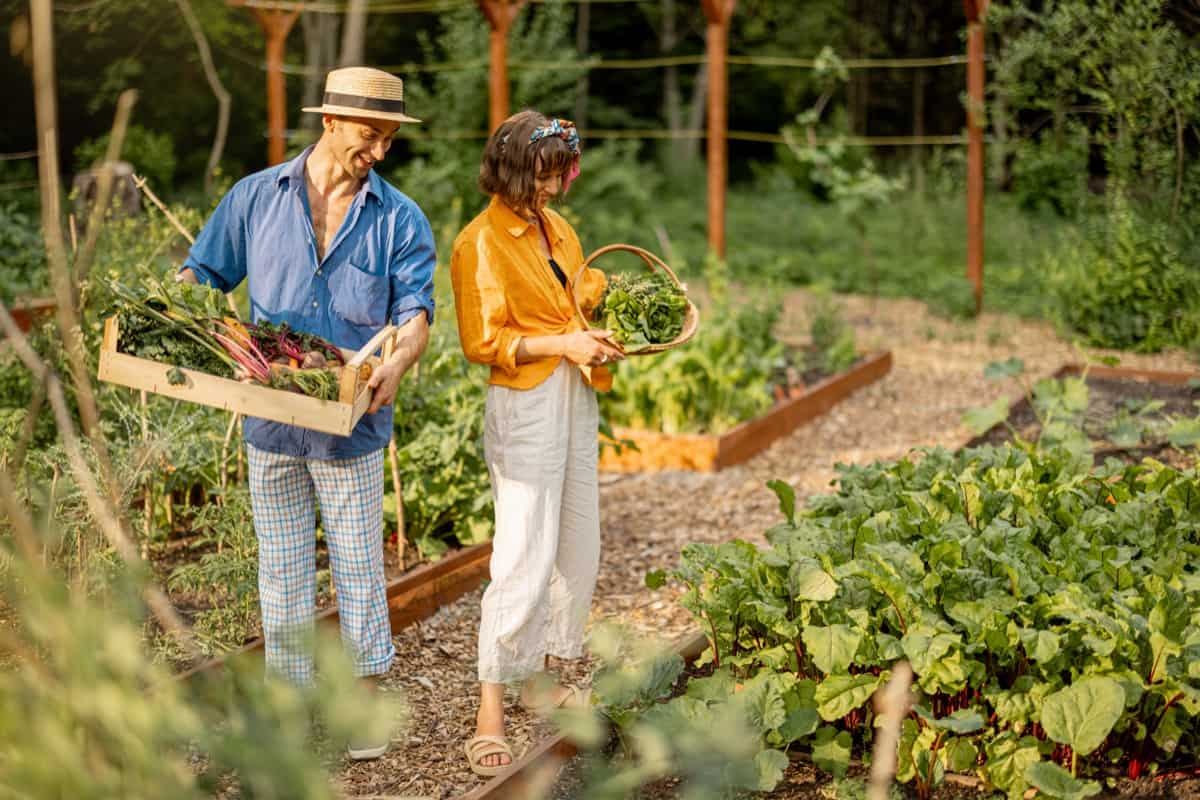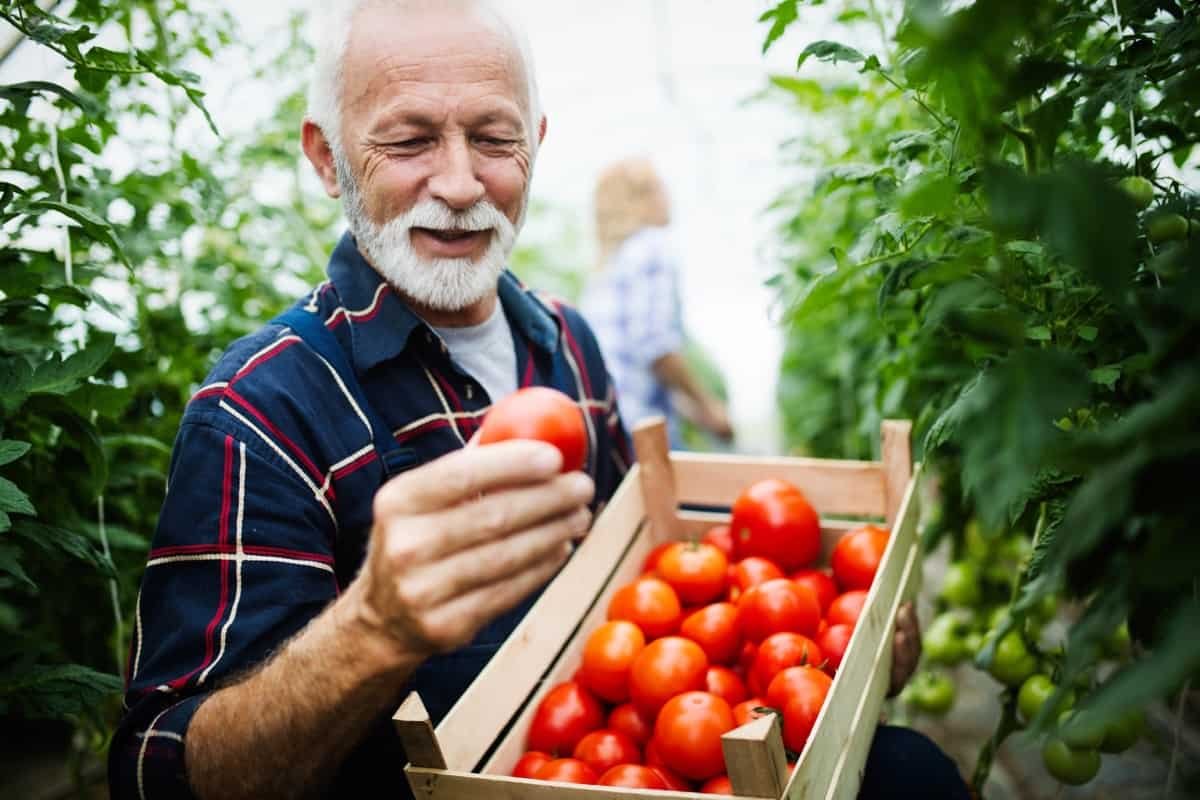With its diverse climatic zones and fertile soils, South Carolina offers many options for gardening enthusiasts. Whether based in the cooler Upstate, the temperate Midlands, or the warmer Lowcountry, the South Carolina vegetable planting schedule, as detailed in the South Carolina planting calendar, ensures you can cultivate a wide array of vegetables. The Clemson Extension vegetable planting guide provides invaluable resources for optimizing planting times.

Many often ask, “What vegetables are easy to grow in South Carolina?” or ponder, “What fruits and vegetables grow best in South Carolina winter?”. For those specifically geared towards cold-season planting, queries like, “What can I grow in the winter in South Carolina?” and “What vegetables can be grown in South Carolina?” are frequent. This comprehensive guide addresses all these concerns, ensuring gardeners have a bountiful harvest throughout the year.
Easiest and Best Vegetables to Grow in South Carolina in Winter
South Carolina’s winter might be mild, but it’s an excellent time for cultivating a range of cold-hardy vegetables. Think leafy greens like spinach, collards, and kale. These thrive in the Upstate’s cooler temperatures and flourish in the Midlands’ temperate conditions. Root vegetables like carrots, beets, and turnips are also superb choices for winter. Their ability to grow beneath the soil protects them from light frosts, making them a staple for many winter gardens.
Summer Vegetables to Grow in South Carolina
The balmy South Carolina summer is a prime time for vegetables that thrive under the sun. The classic tomato is a summer favorite, whether in the Upstate or Lowcountry. Along with it, bell peppers, cucumbers, and eggplants prosper in the South Carolina heat. The Midlands, with its balanced climate, is particularly conducive for squash, sweet potatoes, and okra. Remember, regular watering and vigilant pest control are key to summer gardening.
Best Vegetables for Container Gardening in South Carolina
Limited garden space doesn’t mean limited options. Container gardening presents a highly effective approach for cultivating vegetables such as radishes, lettuce, and herbs. The coastal areas of the Lowcountry find it especially suitable to cultivate dwarf varieties of peppers and tomatoes in pots. These containers can be easily adjusted for optimal sunlight, ensuring healthy growth.
In case you missed it: Best Tasting Tomatoes to Grow in South Carolina: Time to Plant, Types, and Varieties

Easy Vegetables for Beginners to Grow in South Carolina
For those taking their first steps in gardening, South Carolina doesn’t disappoint. The Pee Dee region is ideal for novices, with its fertile soil acting as a safety net. Easy growers include bush beans, zucchini, and cucumbers. These plants are robust, require minimal care, and offer a satisfying yield, making them perfect for boosting the confidence of beginner gardeners.
Fast-growing Vegetables for Quick Harvest in South Carolina
If you’re the kind who loves instant gratification, then fast growers like arugula, baby carrots, and radishes are for you. In places like the Upstate, these can be grown in quick succession rounds to ensure you always have fresh produce on hand. Their rapid growth cycle makes them a favorite among gardeners seeking frequent harvests.
Drought-tolerant Vegetables for South Carolina
South Carolina, though mostly humid, does have its dry spells. Drought-resistant vegetables like okra, black-eyed peas, and Swiss chard are invaluable for such times. These hardy plants tolerate the lack of water and can produce bountiful yields even in adverse conditions.
Best Vegetables for Raised Bed Gardening in South Carolina
Raised bed gardening, a favorite among many in the Lowcountry, offers excellent drainage, especially during heavy rainfall. Vegetables like potatoes, onions, and beets benefit from the enhanced aeration and loose soil structure that raised beds provide. This gardening method ensures plants have optimal root growth and access to nutrients.
Organic Vegetables to Grow in South Carolina
Those inclined towards organic gardening can easily cultivate various vegetables without using chemicals. Spinach, lettuce, and tomatoes thrive when grown organically. Using natural compost, maintaining a balanced ecosystem in your garden, and employing natural pest control methods to ensure a wholesome and chemical-free harvest is crucial.
Heirloom Vegetables for South Carolina Gardens
For those who wish to taste the legacy of ancient flavors, heirloom vegetables are the way to go. Varieties like Brandywine tomatoes, Dragon’s Tongue beans, and Moon & Stars watermelons have a rich history. Though they may require a tad more care than modern hybrids, they are a testament to the rich agricultural heritage of South Carolina and a treat for every gardener’s palate.
In case you missed it: Easy and Best Container Plants for South Carolina: For Winter, Shade, and Full Sun (Summer)

Perennial Vegetables to Cultivate in South Carolina
Regarding long-term gardening, perennial vegetables are an astute choice for South Carolina’s varied climate. From the Upstate’s chillier zones to the Lowcountry’s coastal warmth, options like asparagus, artichokes, and rhubarb can be planted. These vegetables, once established, can produce yields year after year without the need for annual replanting.
The Midlands region is notably favorable for growing perennial herbs like rosemary and thyme. The beauty of perennial vegetables lies in their resilience; they establish deep root systems over time, making them more resistant to pests, drought, and diseases. Their continuous growth also means gardeners can enjoy a harvest over multiple seasons, providing a sustainable source of fresh produce.
Strategies for Pest Control in South Carolina Gardens
No gardening guide for South Carolina would be complete without addressing the issue of pests. From the notorious aphids to the pesky tomato hornworms, South Carolina’s abundant greenery often attracts a variety of unwanted critters. Effective strategies include companion planting, where certain plants are grown together to repel pests. For instance, planting basil alongside tomatoes can deter tomato hornworms.
The garden can also benefit from the introduction of natural predators such as ladybugs and praying mantises. These beneficial insects feast on harmful pests, maintaining a natural balance. In the Pee Dee region, especially, neem oil and diatomaceous earth have proven to be effective organic solutions against various pests, ensuring that the produce remains chemical-free.
In case you missed it: Easy and Best Vegetables to Grow in North Carolina: Planting Guide for Winter, Summer, and Spring

Conclusion
Whether you’re a novice trying out easy vegetables, an enthusiast growing heirlooms, or someone aiming for a sustainable perennial garden, the state offers diverse possibilities. Following the South Carolina planting calendar, leveraging resources like the Clemson Extension vegetable planting guide, and understanding regional specifics will ensure a rewarding gardening experience.
Add to this the organic and natural pest control strategies and a holistic approach to vegetable gardening in the Palmetto State. As you delve deeper into gardening here, each season promises a bounty, a learning experience, and an unparalleled connection with nature.
- Feed Your Flock for Less: Top 10 Tips to Save on Chicken Feed
- Ultimate Guide to Ossabaw Island Hog: Breeding, Raising, Diet, and Care
- Hatching Answers: The Top 10 Reasons Your Chickens Aren’t Laying Eggs
- Eggs and Economics: Breaking Down the Cost of Raising Backyard Chickens
- Defend Your Greens: Proven Methods to Keep Iguanas Out of Your Garden
- Ultimate Guide to Cinnamon Queen Chicken: A Comprehensive Guide for Beginners
- Ultimate Guide to California Tan Chicken: Breeding, Raising, Diet, Egg-Production and Care
- Ultimate Guide to Marsh Daisy Chicken: Breeding, Raising, Diet, and Care
- 10 Types of Chicken Farming Businesses You Can Start for Profits